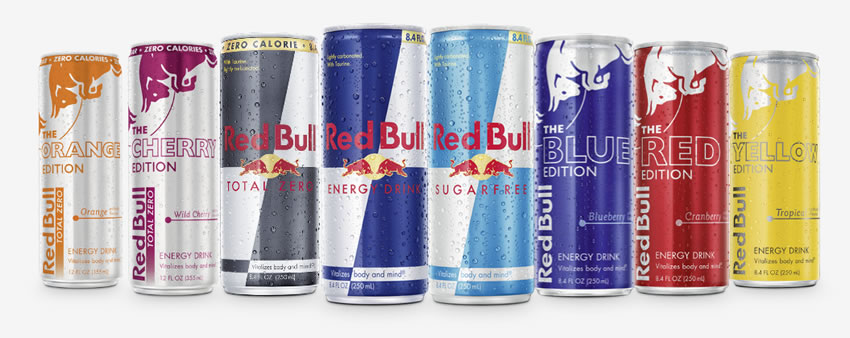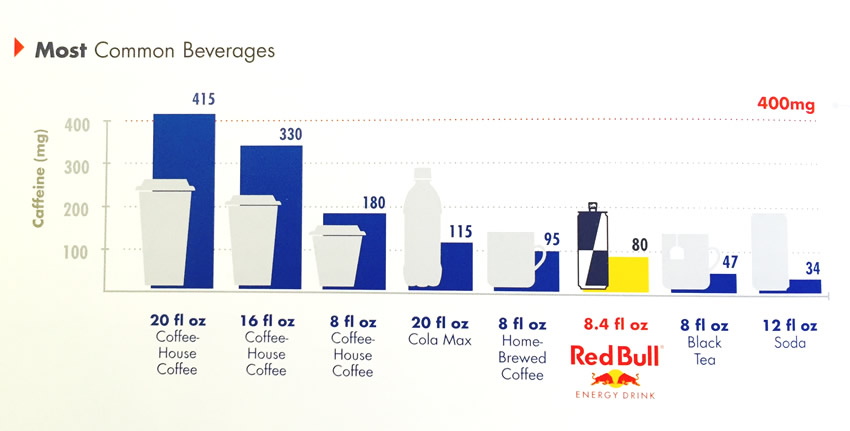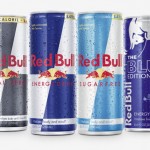Red Bull on Caffeine Safety and Transparency
Red Bull is not only the number one selling energy drink brand on the planet, but they also set the standard for energy drink industry safety guidelines.

They also are extremely transparent about the level of caffeine and the other ingredients their products contain.
I was recently invited to tour Red Bull’s Santa Monica, CA headquarters, meet key staff, and discuss how Red Bull is confronting the issue of energy drink safety and the impact as a company they have on consumers’ dietary choices.
I was extremely impressed with the extensive staff Red Bull employs to ensure consumer safety and education. Here’s some of what I discovered during my time at Red Bull.
Red Bull on Ingredient Transparency
Red Bull was the first energy drink company to list caffeine content on their cans several years ago, paving the way for other companies to follow suit.
They also set the standard by introducing a voluntary warning label on their products, which states that Red Bull is “not recommended for children, pregnant or nursing women, and persons sensitive to caffeine.”
Product Safety
The company has been investing a large amount of resources into consumer education concerning the responsible use of caffeine, as well as the responsible use of Red Bull in general.
I was impressed by the number of people employed by the company focused on product safety, regulation, and consumer education.
Red Bull’s stance on caffeine consumption aligns with not only the recommendations made by us at Caffeine Informer, but also the recommendations made by recognized consumer health authorities such as the FDA, Health Canada, and the European Food Safety Authority.

From Red Bull’s Facts: Caffeine booklet.
Red Bull North America committed years ago to cap their caffeine concentration to no more than 80 mg/8.4 floz across their entire product line.
The company recently published two high quality educational booklets regarding safety, transparency, and the responsible marketing of their energy drinks.
- Facts: Caffeine
- Facts: The Run Down
These booklets are full of valuable information about the use of caffeine and caffeinated products as well as the impact other ingredients in energy drinks can have on one’s health.
Red Bull Marketing
Much of the media’s and government’s backlash against energy drinks has revolved around the way some brands appear to be marketed to teens and children. However, Red Bull North America (RBNA) has established clear guidelines regarding how they will market their energy drinks to consumers.
- RBNA’s marketing will not encourage or condone the excessive or rapid consumption of energy drinks.
- RBNA’s marketing will not say that larger sizes, more caffeine, or higher concentrations of caffeine are better or have a better/stronger effect.
- RBNA’s labeling and marketing will not make claims using language specifically targeted to those under 18.
- RBNA will not buy advertising directly targeted at audiences that are more than 35% under 18 years of age.
- RBNA will not feature child or teen-oriented animated or licensed characters in advertising or any other promotional activities.
- RBNA will not market energy drink products in K-12 schools or any other institutions responsible for this age group. This commitment includes school-related events or activities.
- RBNA will not sell its energy drink products in K-12 schools or any other institutions responsible for this age group. This commitment includes school-related events or activities.
- RBNA will not sample energy drink products in or within the immediate vicinity of K-12 schools or any other institutions responsible for this age group.
The above marketing guidelines are printed in Red Bull’s Facts: The Run Down booklet.
My Conclusions
On the surface, one might expect that Red Bull’s corporate structure would resemble the “extreme sports” image they portray in their various sponsorships and advertisements. However, I personally discovered a completely different side to the company by touring their headquarters and interviewing staff.
Since caffeine education and safety are quite important to me and our mission here at Caffeine Informer, I was thrilled to see that Red Bull is committed to this same mission as well.
Of course, the company’s overall goal is grow, win customers, and to make money. However, I think they are going about their enterprise in a responsible way.
After visiting the company and interviewing key staff, I believe Red Bull is setting the industry standard for transparency, caffeine safety, and consumer education regarding the responsible use of energy drinks.

Get Help Quitting Caffeine
Reduce your caffeine intake without pain and discomfort.
Download our FREE ebook




